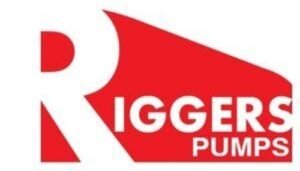Ultra High-Pressure (UHP) pumps are cutting-edge systems designed to deliver extreme water pressure levels, ranging from 1,500 PSI to over 40,000 PSI. These powerful pumps are widely used across industries where precision, force, and efficiency are critical, such as firefighting, industrial cleaning, water jet cutting, and aerospace applications.
How an Ultra High-Pressure Pump Works
Unlike conventional high-pressure pumps, UHP systems operate at significantly higher pressure levels, delivering an ultra-powerful water stream. The pump pressurizes water and directs it through a specialized nozzle or spray gun, producing a focused, high-energy jet capable of performing complex tasks such as cutting materials, deep cleaning, or suppressing fires.
Key Features of UHP Pumps:
- Extreme Pressure: Capable of reaching up to 40,000 PSI, making them effective for tough industrial applications.
- Controlled Flow Rate: Adjustable pressure and flow for versatile applications.
- Unmatched Precision: The focused water stream ensures high-efficiency cleaning, cutting, and material processing.
- Durability: UHP pumps are built to withstand extreme conditions and are typically made from high-quality, corrosion-resistant materials.
Top Industrial Applications of Ultra High-Pressure Pumps
1. Firefighting
UHP technology is revolutionizing firefighting by improving fire suppression efficiency while reducing water usage.
- Faster Fire Extinguishing: The fine mist generated by UHP pumps increases heat absorption, quickly cooling flames.
- Water Conservation: UHP systems use 80% less water than traditional methods, minimizing property damage and runoff.
- Portable & Efficient: Integrated into fire trucks, mobile suppression units, and backpack systems, making them ideal for quick response teams.
- Compact Equipment: These systems are often used in small, portable firefighting equipment such as backpack units, fire trucks, or mobile fire suppression units, making them ideal for rapid deployment in urban or rural areas.
2. Industrial Cleaning & Surface Preparation
Industries rely on UHP pumps for deep cleaning and surface preparation across various applications:
- Rust & Paint Removal: UHP jets strip off rust, paint, and coatings from metal structures, pipelines, and industrial equipment.
- Heat Exchanger Cleaning: Used in power plants and oil refineries to remove deposits and improve efficiency.
- Surface Preparation: Prepares surfaces before coating, painting, or welding, crucial in aerospace and marine industries.
3. Water Jet Cutting: Precision Cutting Without Heat
UHP water jets are a game-changer in precision cutting for industries that require high accuracy without heat damage:
- Cutting Diverse Materials: Easily slices through metals, ceramics, glass, and composites.
- No Heat-Affected Zones (HAZ): Unlike lasers or plasma, UHP cutting preserves material integrity.
- Eco-Friendly Process: Produces no toxic fumes or hazardous waste, making it a sustainable alternative.
4. Oil & Gas Industry Applications
In the oil and gas sector, UHP pumps play a vital role in maintenance and safety:
- Pipeline Cleaning: Removes scale, wax, and debris from internal pipeline walls.
- Hydrostatic Testing: Verifies pipeline strength by pressurizing them with water to detect leaks or weaknesses.
5. Shipbuilding & Marine Applications
UHP pumps help maintain marine vessels and offshore structures:
- Hull Cleaning: Eliminates marine growth like barnacles and algae, reducing drag and improving fuel efficiency.
- Surface Coating Removal: Prepares ship hulls and offshore platforms for repainting and maintenance.
6. Aerospace Industry
The aerospace industry benefits from UHP pumps for precision cleaning and composite material cutting:
- Aircraft Cleaning: UHP pumps are used for cleaning aircraft exteriors, landing gear, and engines without causing damage to sensitive components.
- Composite Material Cutting: UHP water jets are used to cut and shape composite materials used in aircraft manufacturing, such as carbon fiber and Kevlar.
7. Concrete Demolition and Surface Preparation
- Hydro-demolition: UHP pumps are used to remove damaged or weakened concrete without damaging the underlying structures, such as rebar. This is especially useful in the repair of bridges, tunnels, and other infrastructure.
- Concrete Surface Cleaning: UHP water jets are used to clean and prepare concrete surfaces for resurfacing or coating.
8. Municipal and Environmental Applications
- Sewer Cleaning: UHP pumps are used to clean clogged or obstructed sewers and drainage systems. The high-pressure water easily clears blockages caused by debris, grease, and roots.
- Hazardous Waste Removal: In environmental cleanup operations, UHP pumps can be used to remove hazardous materials or contaminants from surfaces and soil.
9. Automotive Industry
- Engine Cleaning: UHP pumps are used to clean engine parts and machinery during manufacturing or repair processes. The high pressure ensures thorough cleaning of oil, grease, and carbon buildup.
- Surface Preparation for Painting: UHP water jets are used to prepare automotive bodies for painting or coating, ensuring a smooth and clean surface.
Advantages of Ultra High-Pressure Pumps
- Efficiency: UHP pumps provide fast and effective cleaning, cutting, or firefighting, reducing operational time.
- Precision: The ability to control the pressure and flow makes UHP pumps versatile for a variety of tasks.
- Water Conservation: UHP pumps use less water compared to conventional high-pressure systems, making them more environmentally friendly.
- Safety: In firefighting, UHP pumps create a fine water mist that reduces the risk of collateral damage from water and minimizes water damage to property.
- Minimal Chemical Use: UHP systems often require fewer or no chemicals, especially in cleaning applications, making them safer for the environment.

